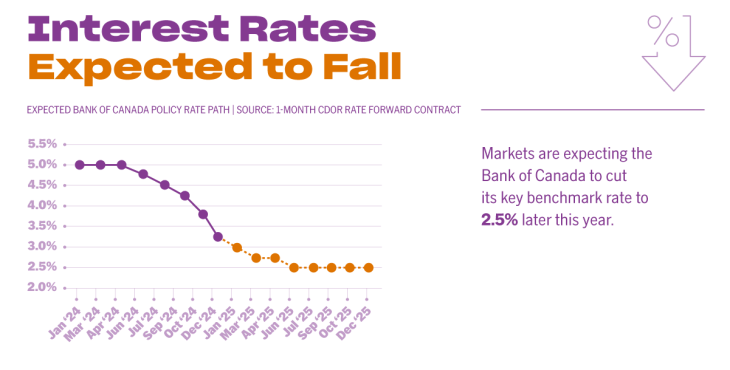There’s no shortage of mortgage advice out there. From online forums to coffee shop conversations, everyone seems to have an opinion. Some of it’s helpful. A lot of it? Not so much.
The truth is, the mortgage world has changed—especially in Canada. Rules, products, and opportunities evolve, but a lot of the advice being passed around hasn’t kept up.
So let’s slow it down and clear up five of the most common myths heard from homeowners and buyers alike—because sometimes, knowing what’s not true can be just as powerful as knowing what is.
Myth #1: You Need 20% Down to Buy a Home
This one stops a lot of buyers before they even get started.
Yes, putting 20% down eliminates the need for mortgage default insurance, but it’s not a requirement—especially for first-time buyers. In Canada, if the home is under $500,000, you can get in with just 5% down. For homes between $500,000 and $1,499,999, the minimum down payment is tiered: 5% on the first $500K, and 10% on the remainder.
The result? You don’t need to hit that 20% mark to make homeownership a reality. And while you will pay mortgage insurance with less than 20% down, it’s often a worthwhile trade-off if it means entering the market sooner or keeping cash on hand for emergencies, renovations, or investments.
Myth #2: Your Bank Is the Best Place to Get a Mortgage
It might feel easier to “just go with your bank,” especially if that’s who you’ve always dealt with. But here’s the thing: your bank can only offer their rates, terms, and products. That’s it.
A mortgage broker isn’t tied to one institution. They work with multiple lenders—including banks, credit unions, and independent mortgage companies—to find the product that fits your specific goals and circumstances. That matters a lot if you’re self-employed, have less-than-perfect credit, or just want a better deal.
More options = more negotiating power, better structure, and a greater chance of finding a mortgage that actually aligns with your life.
Myth #3: The Lowest Rate Is Always the Best Deal
We’ve all seen the ads. “Lowest mortgage rate in Canada!” Sounds great—until you read the fine print.
Some of the lowest-rate mortgages out there come with significant limitations: strict penalties if you break the term early, zero prepayment privileges, or clauses that make it difficult to move or refinance. And in real life, those things matter.
What if you need to break your mortgage to access equity? Or sell unexpectedly? Or refinance to consolidate debt?
The best mortgage isn’t just about the rate—it’s about flexibility, protection, and long-term cost. A slightly higher rate on a mortgage that fits your life could save you far more in the end than a “no-frills” option with hidden landmines.
Myth #4: You Have to Wait Until Your Term Is Up to Refinance
Many people think they’re locked in until their term ends. That’s not true.
You can refinance a mortgage before the term is over. Yes, there may be a penalty—but in some cases, it’s more than worth it. For example, if you’re carrying high-interest debt, funding a major renovation, or need to tap into your home equity for a business or investment, the potential savings or returns may easily outweigh the cost of breaking the mortgage.
The key is running the numbers. A good mortgage advisor will help you calculate whether it makes sense now—or if it’s better to wait.
Myth #5: Renewing with Your Current Lender Is the Easiest—and Smartest—Move
When your mortgage comes up for renewal, it’s tempting to take the path of least resistance. Your current lender sends a renewal notice, and all you have to do is sign.
But here’s what many people don’t realize: lenders often reserve their best rates and promotions for new customers, not existing ones. In fact, renewing without shopping around could mean paying more than you need to—sometimes for the next five years.
Renewal time is a golden opportunity to review your situation, compare options, and even adjust your mortgage strategy. You’ve got leverage, and you should use it.
The Bottom Line
There’s a lot of noise out there. And while mortgage advice might be well-intentioned, it’s not always accurate—or right for your situation.
Getting clarity means asking better questions, exploring your options, and working with someone who looks beyond just rate. Whether you’re buying your first home, refinancing to unlock equity, or preparing for renewal, having the right information (and the right support) can make a huge difference in your financial future.
Because in the mortgage world, the right strategy is worth more than the right guess.
Written by the team at BBM



